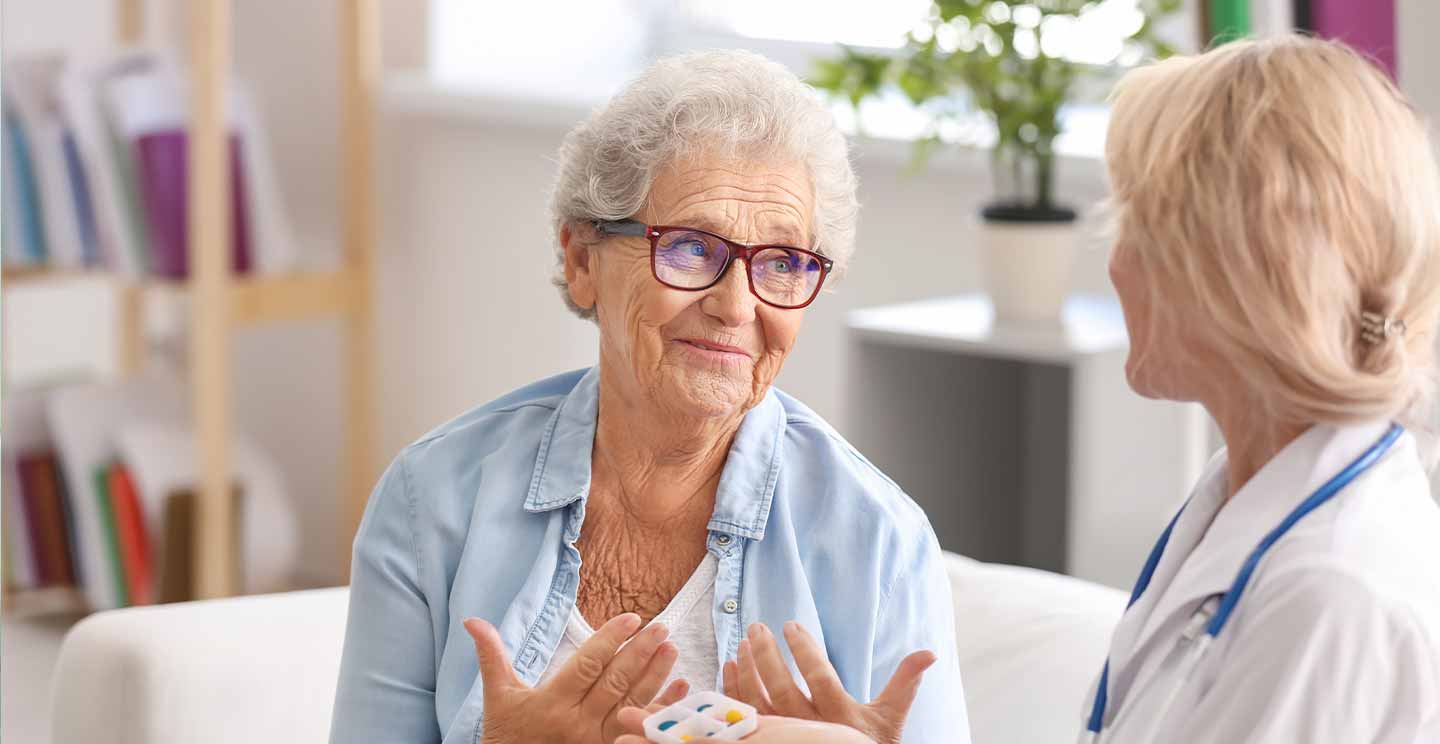
Heart attack and heart failure are two conditions that impact the heart. However, they are not the same thing, and there are several key differences between the two conditions.
Continue readingLiving with Arthritis can be challenging but there are still many things you can do to reduce your pain.
Continue readingA third of people aged 65 and over, and around half of people aged 80 and over, fall at least once a year. Falling is a cause of distress, pain, injury, loss of confidence, loss of independence and mortality.
Continue readingDo you know if your loved one is dehydrated? The signs of dehydration may not be the ones you think. Learn how to manage hydration properly.
Continue readingLoneliness and social isolation are increasing in the elderly. What does it mean and what can you do to help? Loneliness, unlike social isolation, is that ‘sense of suffering from being disconnected from other people’, which is different than social isolation which is simply not being around other people or not having close connections.
Continue readingMental well-being could not be more important for the elderly to reduce their loneliness. Encourage your loved ones to be connected and stay active.
Continue readingThere are so many more activities than you realise to keep your loved ones happy and mentally agile.
Continue readingThe best way for you to stay well is to do everything you can to prevent yourself from getting ill in the first place.
Continue readingOsteoporosis is a disease which makes bones weak and fragile. The disease has no obvious symptoms, so many people don’t know they have osteoporosis until they suffer a fracture.
Continue readingThe elderly are feeling especially isolated during the pandemic. Find ways to help and reduce their loneliness and encourage your loved ones to be connected and stay active.
Continue readingPhysical and mental changes can prevent us from having access to a healthy diet and also alter our relationship with food.
Continue readingProblems with continence affect people of all ages and from all social backgrounds but are particularly prevalent amongst older people.
Continue readingPlaying online games challenges many parts of the ageing brain. Brain games range from those that sharpen your cognitive skills to those that are simply an easy and enjoyable way to pass the time.
Continue readingEnd of life is a really difficult subject but is an important part of the care and support we offer to our relatives and friends.
Continue readingSleep is the most important thing we do for our health.
Continue readingWhat are the best ways tro help adults showing signs of depression?
Continue readingSevere cold snaps can have a dramatic effect on everyday life, especially for the elderly. Top tips to stay warm this winter.
Continue readingIt is easy to miss the signs of malnutrition in the elderly when most people are concerned about dieting. Often we do not realise that food issues have contributed to an overall gradual decline in health.
Continue readingThe elderly are not only concerned about their increasing frailty but often it's their whole well-being that is worrying.
Continue readingThis research adds to growing evidence of using smell tests as an integral part of clinical care for ageing people who may be cognitively impaired.
Continue readingPeople who experience frequent bad dreams in middle age are more likely to be diagnosed with dementia later in life, according to new research.
Continue readingUTI's are a type of infection common among older people. It is usually caused by bacteria entering the urinary tract and can affect your bladder, uretha or kidneys. Why do you get it and what can you do to prevent it.
Continue readingSince the pandemic, elderly people are increasingly worried about the deterioration in their health and are more fearful about normal life.
Continue reading